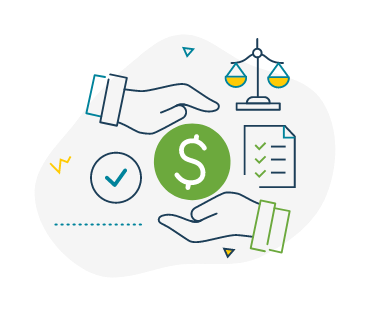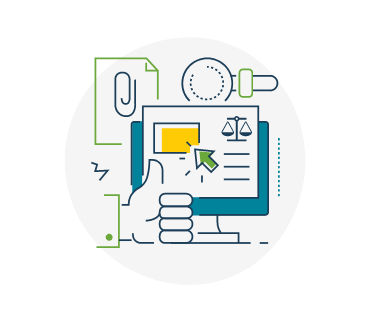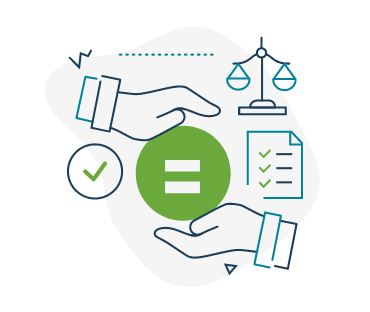Payment Hearing


What kind of documents should I request at a payment hearing as the creditor?
The debtor should provide you with a Statement of Finances 14 days before the payment hearing. It should include information about their income, assets, debts and investments. Review the documents and compare it to whatever you know about their finances to see if there are any gaps or inconsistencies. Come up with a list of questions you want to ask the debtor about their income and assets. See here for a list of questions you can adapt for your case.
If you have received a payment order (an order that requires the payment of money) you may need a payment hearing to set or change payments or to gather information about the debtor. Payment hearings can be set by a judge, requested by the creditor or requested by the debtor.
What to Expect
The default method of attendance will be in-person, unless a judge or judicial justice orders a different method of appearance. At a Payment Hearing:
- Judges can order a date when the debt must be paid
- Judges can make a Payment Schedule with dates and amounts of payments
- Judges can Refuse to make an order in which case the whole debt is immediately payable
- Creditors can get debtor’s information to help with the collection process
- Creditors or debtors can ask for changes in the order or payment schedule
A creditor can ask the debtor about:
- His or her address
- Bank accounts
- Property owned (including cars or land)
- Employment, income and expenses. This is helpful if you want to get a garnishment order or take other enforcement steps
Payment Schedule
A Payment Schedule sets out how the debtor must pay the debt. For example by installments of specific amounts on certain dates. So long as the debtor follows the terms of the payment schedule the creditor cannot use other methods to collect the debt. If a payment schedule is not being followed either creditor or debtor can request a Payment Hearing to change the payment schedule. The creditor can also now take further steps to collect the debt.
How to Request a Payment Hearing
Steps for Creditors:
- Get a copy of the Payment Order: You can request it at the Small Claims Court Registry
- File the Summons: Fill in the Summons to a Payment Hearing form and bring it to the Small Claims Registry at least 14 days before the date of the Payment Hearing. The Registry staff will fill out the date, time and location of the Payment Hearing. Be sure to request the documents you wish the debtor to bring on the Summons. (e.g. record of income and assets)
- Serve the Summons: Personally serve the summons as well as a blank supporting materials cover sheet (Form 39) and a blank statement of finances (Form 40), unless the debtor is a corporation or a partnership, on the debtor at least 14 days before the date of the Payment Hearing
- Complete an Affidavit of Service: Have the person who served the summons fill out the Affidavit of Service to prove service and bring it to the Payment Hearing

Read the Rules
Steps for Debtor:
If you are summoned to a payment hearing by a creditor you must must file at the registry the following records at least 7 days and serve on the creditor at least 2 business days before the date of the payment hearing:
- Supporting materials cover sheet (Form 39) (unless you are not required to file any other records or other things)
- Statement of finances (Form 40), unless the debtor is a corporation or a partnership;
- Any other records or other things required by the summons;
- Any other records or other things on which the person intends to rely at the payment hearing.
If you as the debtor are requesting the Payment hearing you must:
- Fill and file at the registry the following forms at least 14 days before the date of the payment hearing:
- Notice of Payment Hearing (Form 13): The Registry staff will fill out the date, time and location of the Payment Hearing
- Supporting materials cover sheet (Form 39) (unless the debtor is a corporation or a partnership)
- Statement of finances (Form 40) (unless the debtor is a corporation or a partnership)
- Serve the Notice on the Creditor: The creditor must receive the Notice, supporting materials cover sheet, and statement of finances at least 7 days before the hearing date. You can serve it in person, through ordinary mail or registered mail
- Prepare a Certificate of Service (Form 4): Have the person who served the Notice fill out the Certificate of Service to prove service and bring it to the Payment Hearing
- File and serve other materials: You must file any records or other things that you have not already filed but which you intend to rely on at the payment hearing, together with a supporting materials cover sheet (Form 39), at least 7 days before the date of the payment hearing. You must serve these materials on the creditor at least 2 business days before the payment hearing date.
If there are significant changes to your finances after you filed a statement of finances but before the payment hearing, you must file at the registry and serve on the creditor a revised statement of finances with a supporting materials cover sheet.
It is important to come to the hearing prepared. For a debtor looking to set or change a payment schedule because their financial situation has changed, they should be able to show the court their ability to pay the debt. By preparing a Statement of Finances (Form 40) they will be able to demonstrate their financial situation.
If Parties Don’t Show Up
If the creditor doesn’t show up for the payment hearing the court can hold the hearing in their absence, cancel the hearing or adjourn it. If the debtor doesn’t show they can be arrested for not attending.

Learn More
How to enforce a Small Claims Court Payment Order - with a payment hearing from the Provincial Court of BC
Payment Hearings from the Law Centre
Default Hearing
If there is already a payment schedule in effect which the debtor is not following, the creditor can ask for a Default Hearing.
The judge will ask the debtor why the payments were not made and may adjust the order or put the debtor in jail for up to 20 days if the judge feels that the debtor is showing contempt for the court order. The debtor will still owe the money. If the debtor has been properly notified and still does not attend this default hearing, they can be arrested.
To request a default hearing, the creditor must complete a Summons To a Default Hearing (Form 14), following the instructions on the form, and file it at the registry. A court bailiff or sheriff must serve the debtor by leaving with them the summons, blank supporting materials cover sheet (Form 39), and a blank statement of finances (Form 40), unless the person being served is a corporation or a partnership, with the person at least 14 days before the date of the default hearing.

Read the Rules

Find the Form

Learn More
How to enforce a Small Claims Court Payment Schedule - with a Default Hearing from the Provincial Court of BC
Default Hearings from the Law Centre






